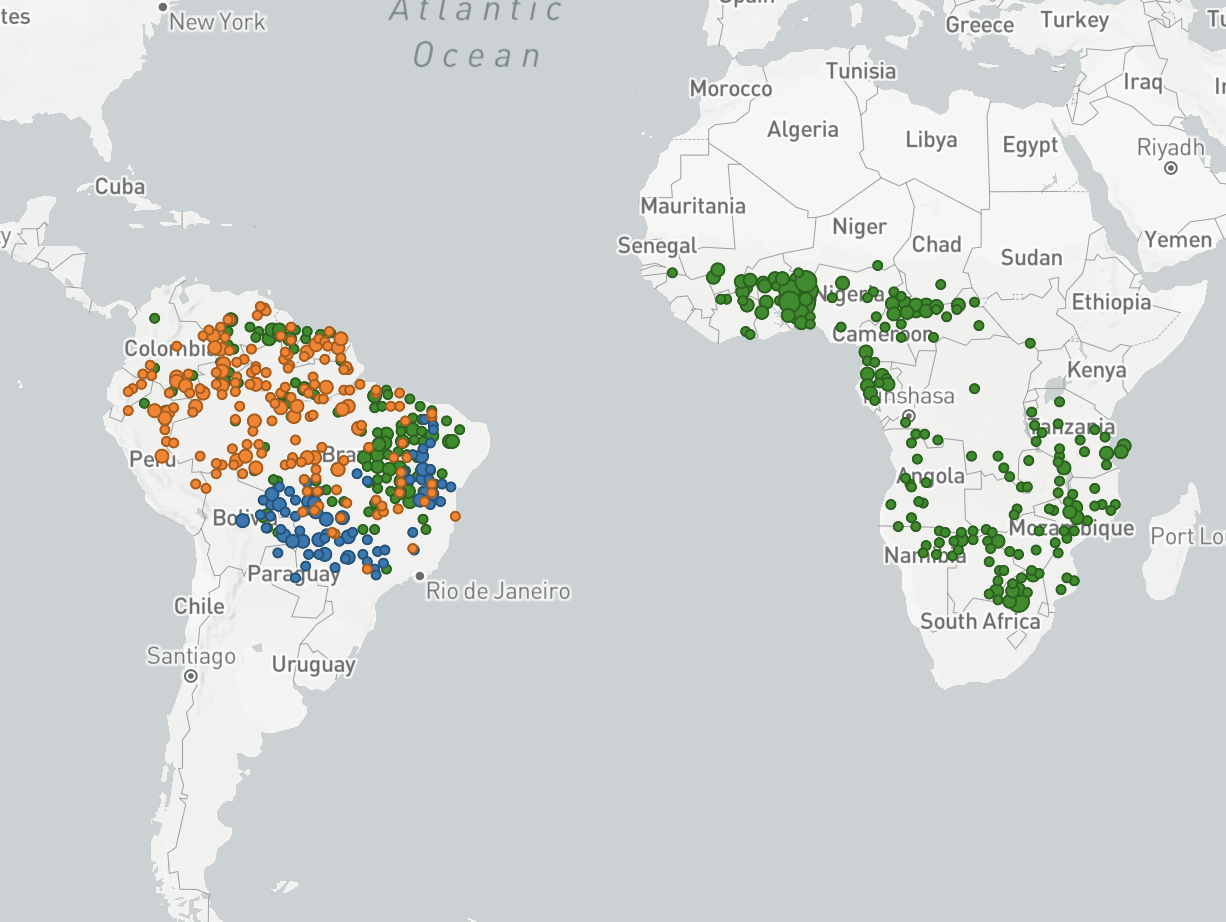GBIF has introduced a new Phylogenetic Explorer on the Legume Data Portal, a project of the Legume Phylogeny Working Group. Released to support the opening keynotes at the 8th International Legume Conference (8ILC), in Piernópolis, Brazil, on 6 August 2023, this visualization tool offers a novel view of species occurrence data from the GBIF network, organizing it in accordance with current phylogenetic evidence on the evolutionary relationships between species within the large, cosmopolitan plant legume family.
The default view in the experimental tool presents GBIF-mediated occurrence data aligned with a recently published phylogeny of caesalpinioid legume species (Ringelberg et al. 2023). Users can browse and select records for 1,860 species at the tips of the tree as well as some higher-order taxa at the joints in the branches. All taxa are matched to the GBIF backbone taxonomy, so the map displayed for any individual species in the phylogeny corresponds to the species map available on GBIF.org.
The viewer’s novelty lies in its ability to map occurrences for an entire clade, or group of taxa linked by one common ancestor, with a single click. Users can also select and compare multiple clades, including closely related sister clades, navigate the phylogenetic tree, change map views and colours, and download the occurrences they select. This ongoing research and development effort builds on lessons learned from two predecessor projects, PhyloJive and PhyloLink.
“The Phylogenetic Explorer presents a large, ecologically important and globally distributed family that can serve as a test case for systematists around the world,” said Anne Bruneau of the University of Montreal. “Our working group has worked as a community since 2010 to facilitate and disseminate research on legume systematics, taxonomy, and biodiversity, so we’re thrilled with these advances.”
The Legume Data Portal, supported by Canadensys and GBIF, runs as an instance of GBIF’s hosted portal service. Working group members used early versions of the viewer to support community curation, which led to the publication of the first version of a community-endorsed global legume checklist that improves the accuracy of occurrence, biodiversity and taxonomic data. Further developments and partnerships are planned following this initial public release, so user comments and feedback are most welcome via phylogeny@gbif.org.
“I’m confident that enabling this shift in perspective to a DNA-based classification will open new avenues for research,” said Joe Miller, GBIF executive secretary. “But equally exciting is the promise that this technical research and development effort holds for directly supporting the policy-relevant indicators of phylogenetic diversity.”
